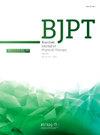“不仅改善了骨关节炎,而且改善了一般健康”:对膝关节骨关节炎自我管理高峰葡萄牙电子学习课程患者体验的定性研究
IF 3.2
3区 医学
Q1 ORTHOPEDICS
引用次数: 0
摘要
膝骨关节炎(KOA)的临床实践指南建议个体接受自我管理的教育。虽然教育可以通过不同的方式提供,包括网站,但并非所有的互联网内容都是基于证据的。膝骨性关节炎的物理治疗运动和体育活动-葡萄牙语(PEAK-PT)电子学习课程为物理治疗师提供了有关膝骨性关节炎的最新循证信息,可能对膝骨性关节炎患者的教育和自我管理有用。目的从KOA患者的角度评估PEAK-PT课程的障碍和促进因素,并了解课程提供的信息是否与他们之前的KOA信息一致。方法对完成PEAK-PT课程的9例KOA患者进行定性研究。半结构化访谈探讨了促进因素、障碍和先验知识。这三个类别为使用内容分析的数据分析提供了依据。结果PEAK-PT的促进因素包括在线可访问性、结构化课程模块和可下载材料。障碍包括技术问题和文化适应的需要。参与者报告说,他们对自我管理的理解和动机都有所提高,一些人注意到所提供的信息证实了他们已经知道的东西,而另一些人则发现了新内容与他们之前的信念之间的差异。结论:本研究结果表明,为临床医生制定的计划也可能对KOA患者有益。但是,针对KOA患者的健康状况教育课程应根据文化进行调整。本文章由计算机程序翻译,如有差异,请以英文原文为准。
“Improved not only the osteoarthritis but also general health”: A qualitative study on patient experiences with the peak-portuguese e-learning course for knee osteoarthritis self-management
Introduction
Clinical practice guidelines for knee osteoarthritis (KOA) recommend that individuals receive education for self-management. Although education can be offered through different means, including websites, not all internet content is evidence-based. The Physiotherapy Exercise and Physical Activity for Knee Osteoarthritis - Portuguese (PEAK-PT) e-learning course provides updated and evidence-based information on KOA for physical therapists and may be useful for the education and self-management of individuals with KOA.
Objective
To assess the barriers and facilitators to engage with the PEAK-PT course from the perspectives of individuals with KOA and understand if the information provided by the course aligned with information about KOA they previously had.
Methods
A qualitative study was conducted with nine individuals with KOA who completed the PEAK-PT course. Semi-structured interviews explored facilitators, barriers, and prior knowledge. These three categories informed data analysis using content analysis.
Results
Facilitators of PEAK-PT included online accessibility, structured course modules, and downloadable materials. Barriers included technical issues and the need for cultural adaptation. Participants reported improved understanding and motivation for self-management, with some noting that the information provided confirmed what they already knew, while others identified difference between the new content and their prior beliefs.
Conclusion
This study's findings suggest that a program developed for clinicians may also be beneficial for individuals with KOA. However, education courses on health conditions for individuals with KOA should be culturally adapted.
求助全文
通过发布文献求助,成功后即可免费获取论文全文。
去求助
来源期刊
CiteScore
6.10
自引率
8.80%
发文量
53
审稿时长
74 days
期刊介绍:
The Brazilian Journal of Physical Therapy (BJPT) is the official publication of the Brazilian Society of Physical Therapy Research and Graduate Studies (ABRAPG-Ft). It publishes original research articles on topics related to the areas of physical therapy and rehabilitation sciences, including clinical, basic or applied studies on the assessment, prevention, and treatment of movement disorders.

 求助内容:
求助内容: 应助结果提醒方式:
应助结果提醒方式:


